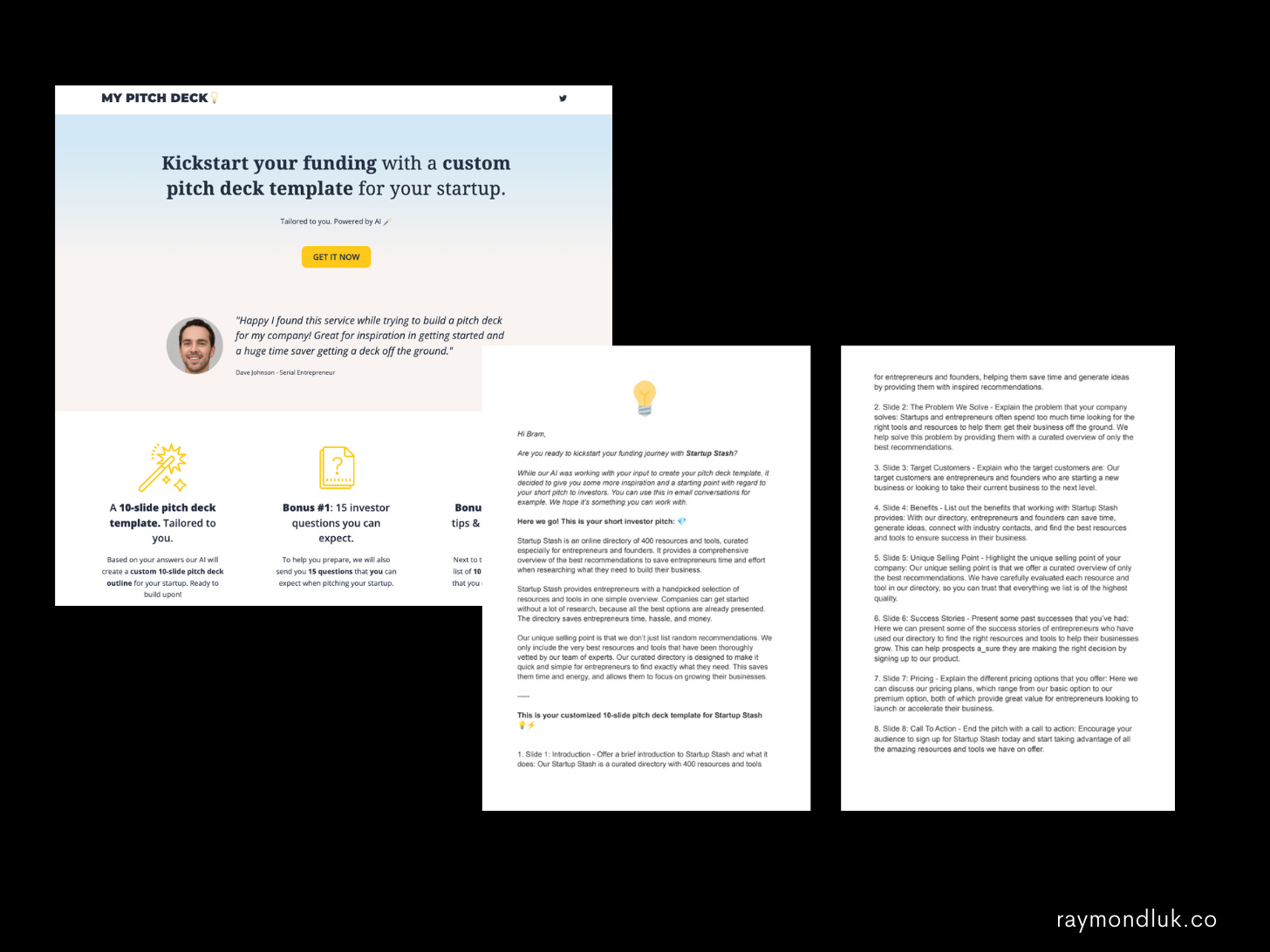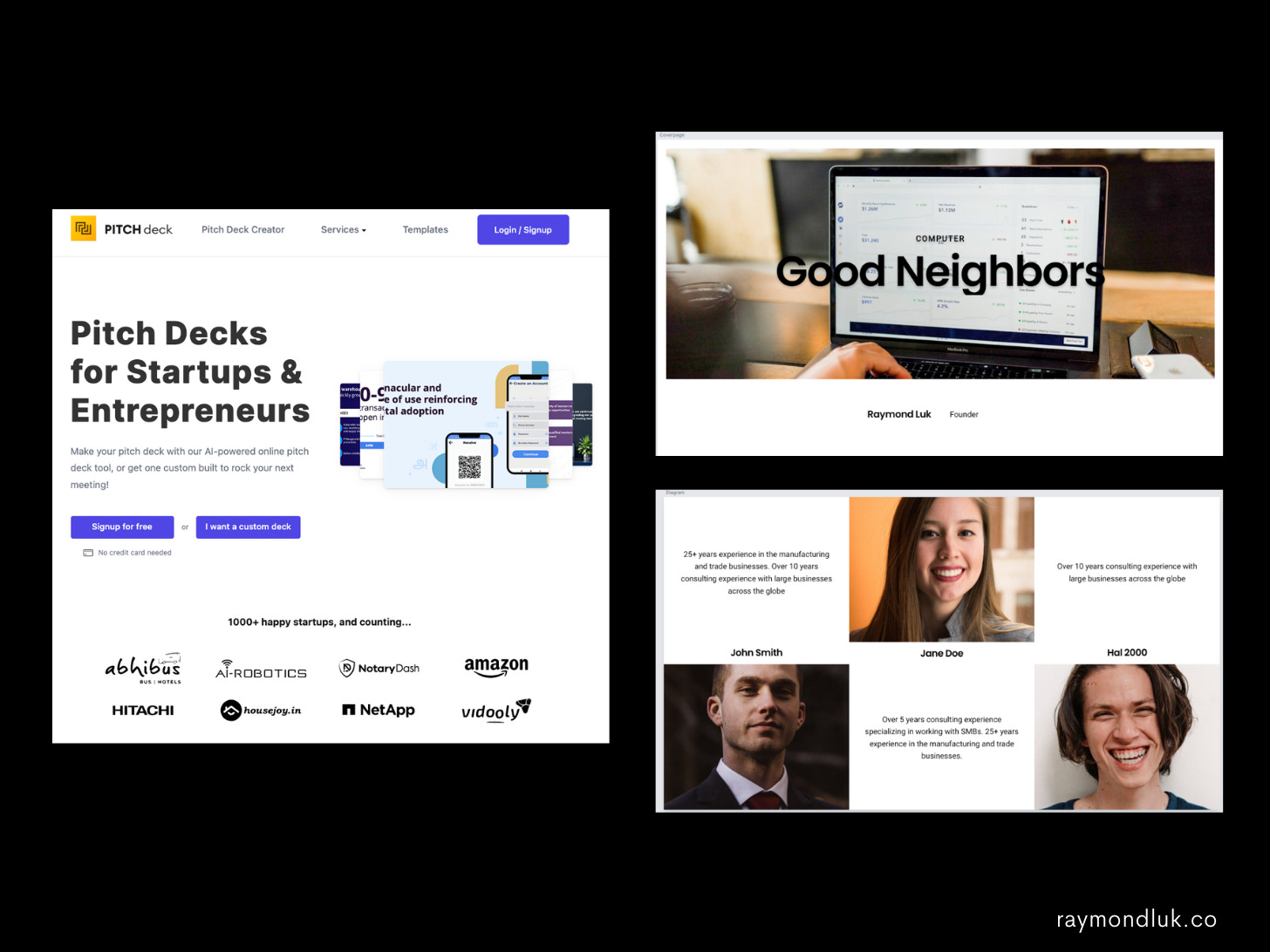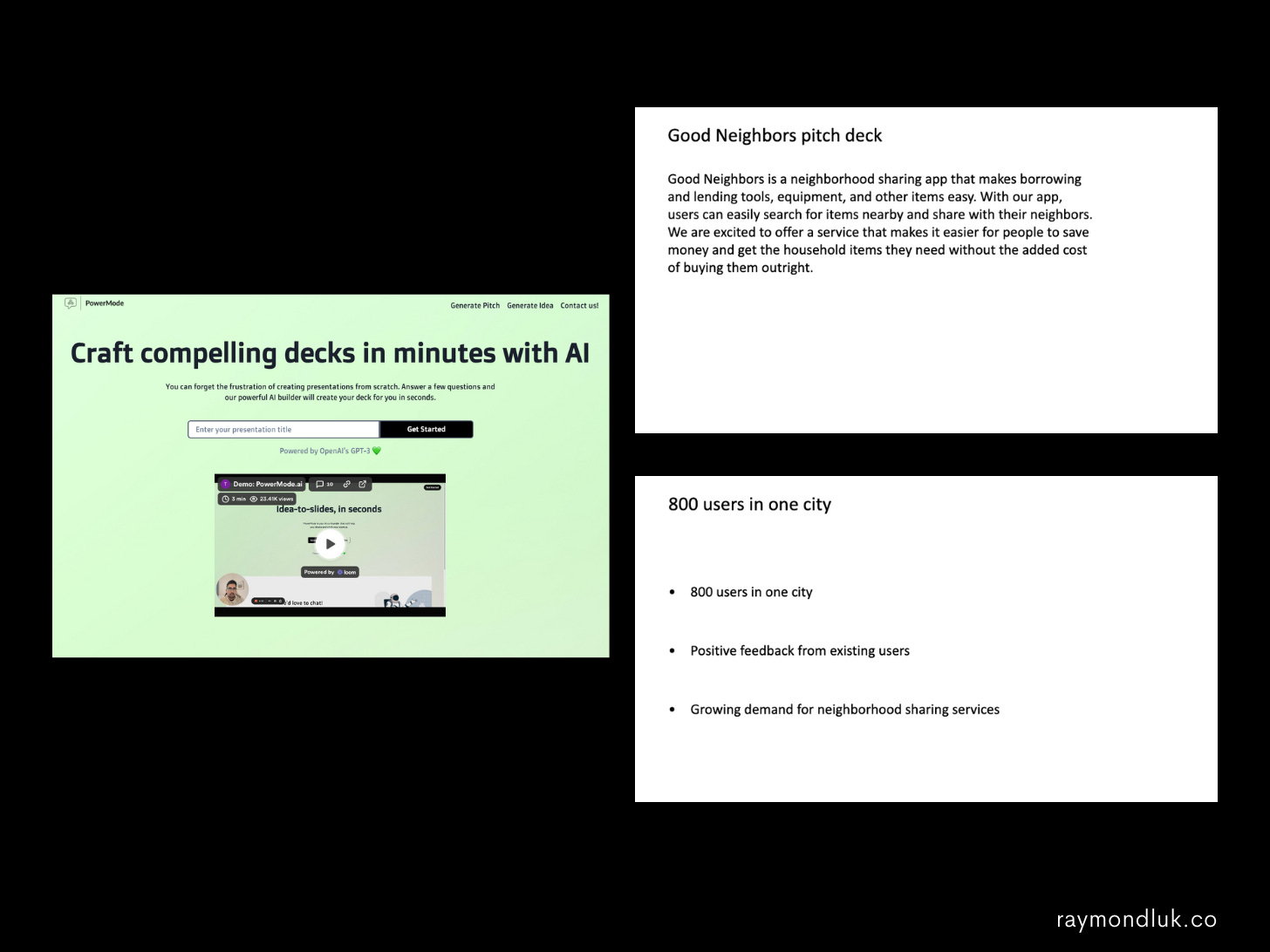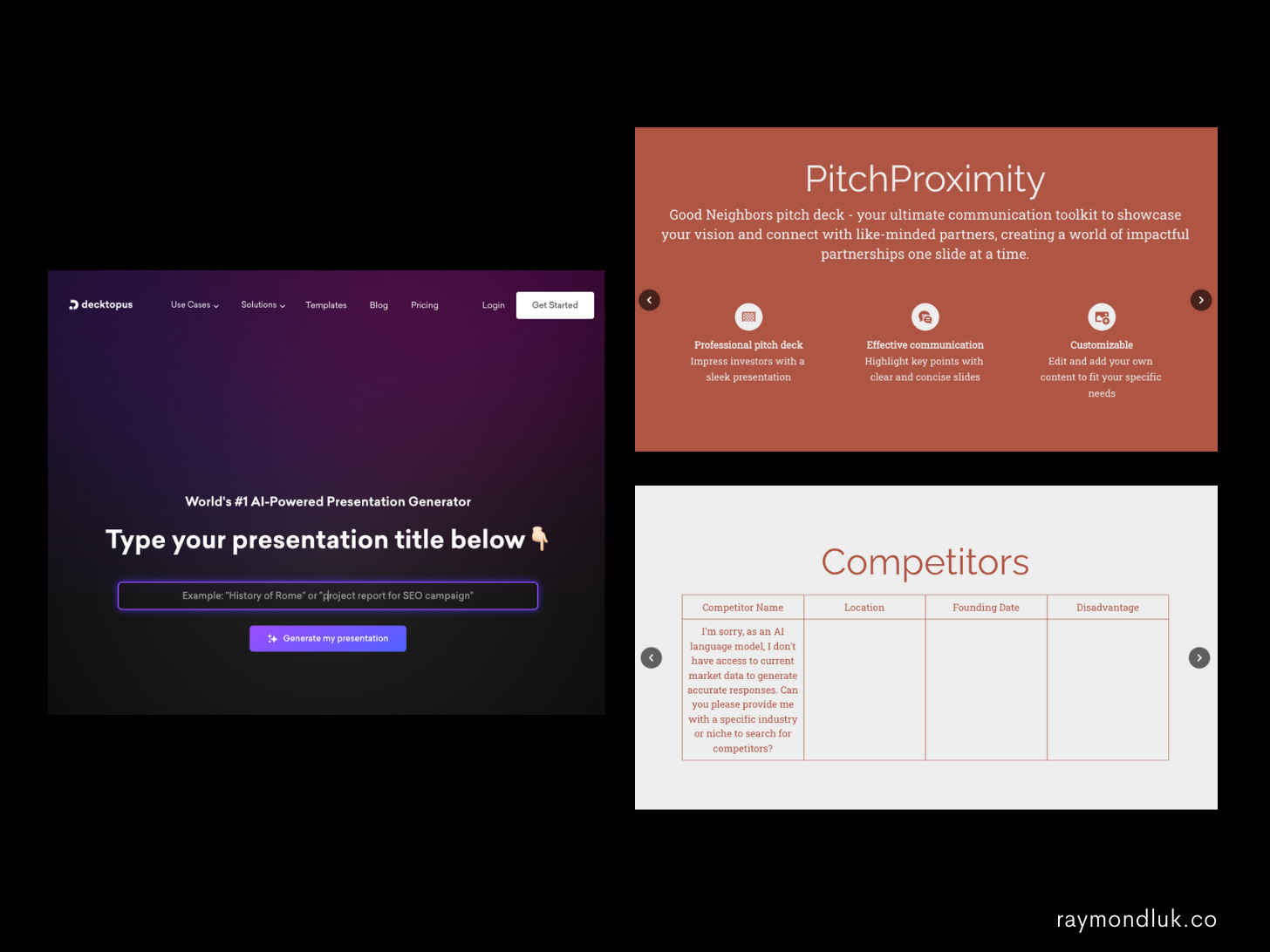Last year I wrote a post called RIP Pitch Decks in which I predicted the end of pitch decks made by humans.
Tools like Grammarly already help people write. GitHub Copilot helps coders code. Expect to see AI co-pilot tools explode as more and more use cases are discovered.
Pitching is one of them.
Six months later, if you’re cheering for the human side I have good news: none of the AI tools I tested is valuable as a copilot (yet).
That doesn’t mean my prediction is wrong. But I’ll admit I’m disappointed in the quality of what’s out there. We’re in the “look what AI can do” stage vs the “how can I make it useful” stage.

What I looked for
Story - anyone who knows my writing knows how important story is to a pitch. I rarely mention design. I looked for the use of AI to improve storytelling. Was there any value add beyond going to ChatGPT and asking it to generate my slide outlines? I didn’t find any tools that improved storytelling except when they used a fixed template.
Presentation - design, layout, what slides were included. Some integrated with Google Slides which is a logical approach. Most had their own UI feature set and unfortunately, none of the tools created designs I would use in real life.
Input - how text was inputted and the ROI from having to enter more text. Most had a simple text box input which is convenient but only if the output is good (it often wasn’t). A few had extensive Q&As, the longest being PitchBob and Pitch.space. The idea of a chat bot makes sense especially if you need help (which is kind of the idea). On the other hand, if it’s just a form that outputs to a standard template it’s not that useful (and not AI).
Flexibility - I didn’t see any tool being able to generate multiple versions of a deck from the same output. This doesn’t make sense if the tool is truly AI. For me, the biggest value of an AI pitch deck copilot is to quickly generate lots of options. If it only makes one you can just use a template.
I did not test Google Slides, Powerpoint or Canva because even if they’ve demo’d what looks like cool generative features, I was not able to test them yet. And they aren’t specific to pitch decks. I included Tome because they specifically mention the pitch deck use case even though their product is for all types of storytelling.
I provided the same basic info from my (fictional) Good Neighbors startup:
We are an app that makes it easy to share things with your neighbors like your lawnmower, tools or equipment. You can photograph things you want to lend and we automatically tag them. You can search for things you want to borrow. We charge $10/month with no transaction fees and have built in tracking and insurance. We have built an MVP, and have 800 users in one city. We are raising $1M to expand to 40 cities and hit $100K MRR. We are 3 co-founders with prior startup experience.
I did not spend time tinkering with the output because I was looking for some generative ability that was better than me doing it manually.
The Verdict: No one passed the test
But a few stood out:
PitchBob
PitchBob.io was the only product that had a copilot feel. I used Whatsapp to ‘talk’ to Bob who was generous with feedback and even some pushback. This is a good approach that I hope they develop further. Their design output was not the worst but not ready to be used in a real fundraising situation.
PitchSpace
Pitch.space had the most extensive up-front interview. It had an attractive design and I felt it had the best pitch deck advice of all the tools. But though I agreed with their advice, it felt like a static form not a adaptable copilot. Like all tools, the design output was not great.
Tome
Tome has raised more money than all of the other tools combined so I wanted to take a look. I found it difficult to find their sweet spot. As a design tool I did not think it was better than Canva. As a storytelling tool it did not do anything to prompt better stories. I think all the products need to keep in mind that my starting point today via templates is pretty advanced. No one starts with a blank slate.
Today, none of these tools is useful as a copilot for founders building a pitch deck. I define useful as better than existing alternatives.
You are better off using ChatGPT directly to build and improve your pitch outline. This gives you a better UI, in my opinion, to craft and iterate your story before you design it.
When you’re ready you can easily get a designer to help you or use a template.
But stay tuned. I continue to monitor the space and I will do another round of reviews in a few months or when something big changes. Humans should not get too complacent.
If you have experience with any AI pitch tool reach out and share you experience with me. Or let me know if I’ve missed a tool that I should test the next time around.
Product screenshots
Here are some screenshots of how each product positions itself (left) and sample output (right). Use this PDF to access clickable URLs for each product.






















